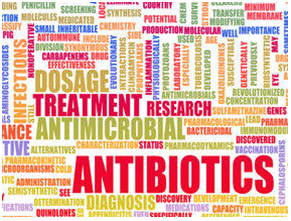Children exposed early to antibiotics likely to have allergies later in life

Meta-analysis of 34 observational studies.
A meta-analysis suggests children exposed to antibiotics early in life may have an increased risk for developing symptoms of hay fever, eczema and food allergy later in life. The findings were published in the journal Allergy.
Researchers screened the PubMed and Web of Science databases and identified 34 observational studies (20 cohort; 6 case-control; 8 cross-sectional) which were included in the final meta-analysis.
Early life exposure to antibiotics was found to have a significant association with risk for hay fever (OR, 1.23; 95% CI, 1.13-1.34), eczema (OR, 1.26; 95% CI, 1.15-1.37) and food allergy (OR, 1.42; 95% CI, 1.08-1.87). However, there was no significant association between early life exposure to antibiotics and markers of allergy such as positive skin prick test (OR, 1.01; 95% CI, 0.92-1.11) and elevated allergen-specific serum/plasma IgE levels (OR, 0.95; 95% CI, 0.77-1.16) later in life.
The mechanisms underlying the association have not been clearly understood yet. One of the possible mechanisms could be immunomodulatory action of antibiotics through modification of gut microbiota, thereby influencing the risk for allergic disorders. There is also a possibility of confounding by indication, where individuals prone to allergies later in life may also have a susceptibility to immunodeficiency conditions requiring treatment with antibiotics early in life.
According to the authors, inappropriate antibiotic use in children is a major concern, hence it is essential to define prognostic and diagnostic markers and identify children who never benefited from antibiotics therapy. There is also a need to educate patients and clinicians regarding judicious use of antibiotics.
Source: A meta-analysis. Allergy. 2017 Nov 6 [Epub ahead of print]. doi: 10.1111/all.13332. PMID: 29105784

